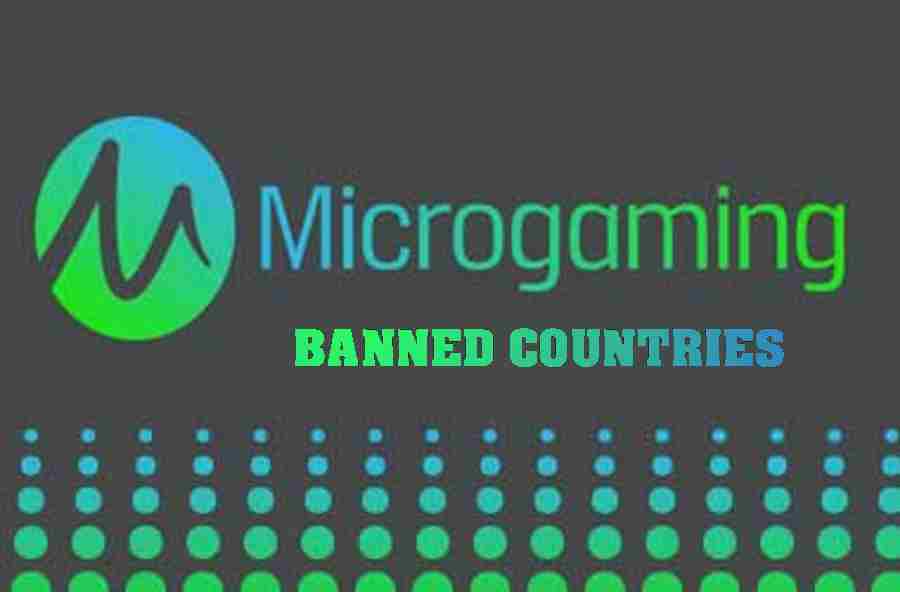
Microgaming is a software developing company that is widely known to have received credits for the first real online casino released as far back as the year 1994. It currently boasts of over 600 games available for users in different countries all over the planet.
Although the company based on its standards is capable of handling participants from every country of the world, it is handicapped by the laws of some countries. Some countries of the world frown generally at online gambling from an ethical point of view while some countries are unequivocally clear in their laws, about their stand as regards the subject matter. Countries that fall in any of those two categories stated are a matter of safety and security concerns, are blacklisted by Microgaming.
Greece is one of the countries that have banned Microgaming. The reason being that online casinos can be very addictive, since people can have access to it in the comfort of their homes then they tend to lose more. More people losing money every day is bad economically and can affect the security situation in the country as well as increase the number of depression cases. Also, there is the argument that the under-aged population can easily get access to online gambling hence affected in the same vein.
Although a fraction of the country is saying there are better ways that this could be handled like granting Microgaming the license to operate with certain conditions. Conditions such as strictly reducing the maximum bet that can be placed by a user and increasing the return to player (RTP) value. Reducing the maximum acceptable loss limit per day and increasing taxes on bets placed are also conditions that could work as stated by this faction of the Greek society.
Another European country with an interesting Microgaming relationship is France. Some years back, users from France were totally banned from betting on Microgaming but recent reports although not verified, claim that bets are being accepted by casino affiliates thereby overriding the ban and the system put in place for its regulation.
The United Kingdom is also a headache for companies that produce online gambling software. As with every delicate issue, serious discussion, debate, and consultation from stakeholders took place before the popular UK Gambling, Licensing, and advertising bill were submitted to the UK parliament in the fifth month of 2013. As a result of this bill being passed due to the receipt of the royal assent a year later, online gambling as known in the UK changed.
First, the bill became the UK Gambling, Licensing and Advertising Act of 2014. Next was the realization that any company that wishes to provide online gambling or advertising service will have to pay the authorities for a license. This was agreed upon at first and the interested parties complied, and then came the solid rock that hit everyone hard in the beginning of 2016. The Gambling Commission levied a tax of fifteen percent (15%) on all bets from UK players. This, the Microgaming operators could not agree to hence they no longer applied for licensing in the UK. The United Kingdom’s approach is undoubtedly very apt and strategic.
The biggest country of all the players on the Microgaming blacklist will have to be the United States of America. An act was passed back in 2006 called the Unlawful Internet Gambling Enforcement Act or UIGEA. This act made it uncomfortable for Microgaming to operate the way they do, and ultimately led to their exit from the country. read more on this article US delays crackdown on Internet gambling
On the list of restricted Microgaming countries, are mostly those countries with history of not allowing online gambling. Other countries on this list updated 2018 include Australia, (August 2018)
Microgaming Restricted List 2018
Algeria, Afghanistan, Benin, Bangladesh, Belgium, Bulgaria, Botswana, Burkina Faso, Cameroon, Cambodia, Central African Republic, China, Chad, Cote d’lvoire, Cyprus, Cuba, Denmark, Equatorial Guinea, Djibouti, Ethiopia, French Guiana, France, Gabon, Greece, Gambia, Guadelupe, Greenland, Haiti, India, Hong Kong, Poland, Estonia, Togo, Thailand, North Korea, Philippines, United Arab Emirates, Sudan, Swaziland, Tongo, Uruguay, Suriname, Iran, and Mongolia.







